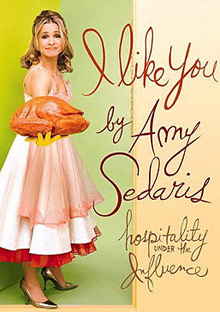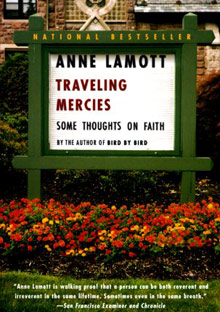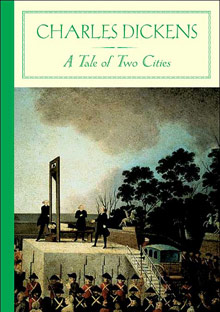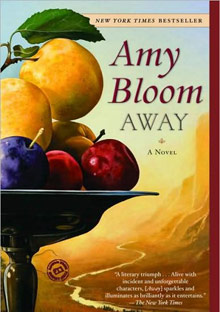What's on Amy Poehler's Bookshelf?
For the actress, reading is an introduction to characters of all kinds—;the wise, the plucky, the strange, and the downright kookalicious—who make the world a more fascinating and funny place.

Photo: Jason Merritt/Getty Images
When I was growing up, I was a voracious reader; I loved sitting in my house and jumping into new worlds. But more important, I loved meeting new people. Reading was a way to make friends or enemies, a way to discover how all these different people exist in the world and to rub shoulders with them. The ability to feel as if you've met someone, as if that person exists in flesh and blood and that you relate to them somehow, makes you feel a lot less lonely. And it also makes you feel very brave. When you read stories about triumph and about struggle and people coming to terms with how scary life is, you begin to think, "What could I take? What could I do? What would I do in that moment?"
Many of the books on my list are about big themes, light and dark, goodness and evil. (Except for Amy Sedaris's, which is more about the theme of cupcakes versus meatballs.) They hinge on the moment when you come to a crossroads and you have to choose who you want to be. Would you make the decision that is filled with honor and truth? Or would you make the easier choice of retreat and deception? Good characters are complex; they continue to change. Just when you think you've got them in your hand, they slip away. But they keep you reading, keep books interesting, and, maybe, make you more compassionate.

I Like You
By Amy Sedaris
Full disclosure: Amy is a friend, and I have tasted her cupcakes. They're really, really good. (And that is not a euphemism.) I Like You is a spin on those 1960s cookbooks about how to make a nice home and how to entertain. I picked it because I love the character Amy plays: a hostess from the '60s, in cheap hosiery, wigs, and crazy costumes. But it's also got recipes for a delicious meatloaf and advice on how to deal with drunk guests. My favorite tip is that when you're having a party, you should fill your medicine cabinet with marbles—so that when people are snooping, they get caught. I know that Amy really does like to entertain that way. Sometimes she'll charge people 25 cents to take a picture with a stuffed rabbit. The book is hilarious, beautifully designed, and captures Amy in so many ways.

Traveling Mercies
By Anne Lamott
The autobiographical essays in this collection cover faith and family, booze, men, and self-love. They're full of the small moments in Lamott's life, the observations that make you laugh really hard and make you bawl really fast—two of my favorite activities. She talks about how the most popular prayers are "Help me, help me, help me" and "Thank you, thank you, thank you." I've read all her work, and she continually surprises me and speaks to me. One of the lines from this book that I love is: "All you can do is show up for someone in crisis. Your there-ness...can be life giving, because often everyone else is in hiding." That's just killer.
Lamott is so open and funny and honest about her own shortcomings and insecurities that you feel connected. She takes away the mystery of things like writing or religion or motherhood and makes you feel included in a very human way. I think every good book should make you feel connected to the rest of the world.

A Tale of Two Cities
By Charles Dickens
When stories become iconic, you sometimes forget what made them so special in the first place. They can become the punch line to a joke. But A Tale of Two Cities not only has the best first line ever written—"It was the best of times, it was the worst of times"—it's got everything! The novel has wine, guillotines, revolution! It has the storming of the Bastille! It has Madame Defarge, one of the best villains in any literary novel. At the end, it's got a little romantic switcheroo: One man stands in the place of another and dies for the woman he loves. The first line is fitting right now. It's a very have and have-not time. It's certainly the most hopeful period for our country but also a very bleak one for a lot of people.

Away
By Amy Bloom
This is the story of Lillian Leyb, a Russian immigrant making her way in a new land, traveling through America in the mid-1920s. Her daughter was taken away from her during a pogrom in Russia, and she feels this unbelievable mother's pull to search for her child that keeps her going—literally—through woods and snow and over mountains. From minute one, you root for Lillian's success because she's this plucky heroine. I felt as if I were on the journey with her, so there were a couple of moments when I would just want to throw the book across the room and yell, "Amy Bloom, if you make Lillian suffer anymore, I am going to kill you!" This is a sweeping story of someone new to America who runs into the best and worst of people. The kindness—and the harshness—Lillian finds along the way represents, I think, the real experience of our country.

A Prayer for Owen Meany
By John Irving
This is a strange book, but it's strange because it's packed with so many great characters. It's the story of a little boy, Owen Meany, who has a peculiar voice and believes he is an instrument of God. He and his friend Johnny are on a Little League team when Owen hits a foul ball that kills Johnny's mother. From that moment, the boys' lives are intertwined. I could picture and smell and hear what Owen Meany was like. Irving captures the innocence of youth, of people growing up together and figuring out who they want to be, and discovering the pain of separation—that made the book great for me. It's about faith and fate, and how you don't know who the messenger is going to be.
Many of the books on my list are about big themes, light and dark, goodness and evil. (Except for Amy Sedaris's, which is more about the theme of cupcakes versus meatballs.) They hinge on the moment when you come to a crossroads and you have to choose who you want to be. Would you make the decision that is filled with honor and truth? Or would you make the easier choice of retreat and deception? Good characters are complex; they continue to change. Just when you think you've got them in your hand, they slip away. But they keep you reading, keep books interesting, and, maybe, make you more compassionate.

I Like You
By Amy Sedaris
Full disclosure: Amy is a friend, and I have tasted her cupcakes. They're really, really good. (And that is not a euphemism.) I Like You is a spin on those 1960s cookbooks about how to make a nice home and how to entertain. I picked it because I love the character Amy plays: a hostess from the '60s, in cheap hosiery, wigs, and crazy costumes. But it's also got recipes for a delicious meatloaf and advice on how to deal with drunk guests. My favorite tip is that when you're having a party, you should fill your medicine cabinet with marbles—so that when people are snooping, they get caught. I know that Amy really does like to entertain that way. Sometimes she'll charge people 25 cents to take a picture with a stuffed rabbit. The book is hilarious, beautifully designed, and captures Amy in so many ways.

Traveling Mercies
By Anne Lamott
The autobiographical essays in this collection cover faith and family, booze, men, and self-love. They're full of the small moments in Lamott's life, the observations that make you laugh really hard and make you bawl really fast—two of my favorite activities. She talks about how the most popular prayers are "Help me, help me, help me" and "Thank you, thank you, thank you." I've read all her work, and she continually surprises me and speaks to me. One of the lines from this book that I love is: "All you can do is show up for someone in crisis. Your there-ness...can be life giving, because often everyone else is in hiding." That's just killer.
Lamott is so open and funny and honest about her own shortcomings and insecurities that you feel connected. She takes away the mystery of things like writing or religion or motherhood and makes you feel included in a very human way. I think every good book should make you feel connected to the rest of the world.

A Tale of Two Cities
By Charles Dickens
When stories become iconic, you sometimes forget what made them so special in the first place. They can become the punch line to a joke. But A Tale of Two Cities not only has the best first line ever written—"It was the best of times, it was the worst of times"—it's got everything! The novel has wine, guillotines, revolution! It has the storming of the Bastille! It has Madame Defarge, one of the best villains in any literary novel. At the end, it's got a little romantic switcheroo: One man stands in the place of another and dies for the woman he loves. The first line is fitting right now. It's a very have and have-not time. It's certainly the most hopeful period for our country but also a very bleak one for a lot of people.

Away
By Amy Bloom
This is the story of Lillian Leyb, a Russian immigrant making her way in a new land, traveling through America in the mid-1920s. Her daughter was taken away from her during a pogrom in Russia, and she feels this unbelievable mother's pull to search for her child that keeps her going—literally—through woods and snow and over mountains. From minute one, you root for Lillian's success because she's this plucky heroine. I felt as if I were on the journey with her, so there were a couple of moments when I would just want to throw the book across the room and yell, "Amy Bloom, if you make Lillian suffer anymore, I am going to kill you!" This is a sweeping story of someone new to America who runs into the best and worst of people. The kindness—and the harshness—Lillian finds along the way represents, I think, the real experience of our country.

A Prayer for Owen Meany
By John Irving
This is a strange book, but it's strange because it's packed with so many great characters. It's the story of a little boy, Owen Meany, who has a peculiar voice and believes he is an instrument of God. He and his friend Johnny are on a Little League team when Owen hits a foul ball that kills Johnny's mother. From that moment, the boys' lives are intertwined. I could picture and smell and hear what Owen Meany was like. Irving captures the innocence of youth, of people growing up together and figuring out who they want to be, and discovering the pain of separation—that made the book great for me. It's about faith and fate, and how you don't know who the messenger is going to be.



